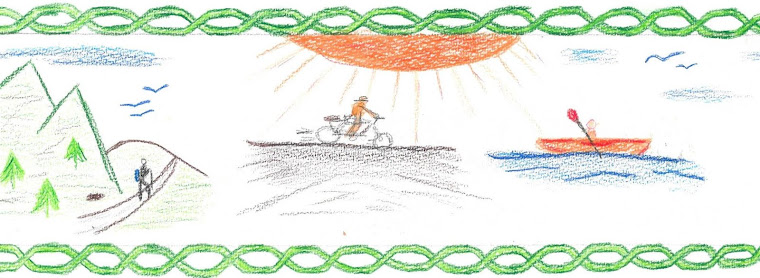Lectionary Ruminations 2.5 is a further revision and refinement
of my Lectionary Ruminations and Lectionary
Ruminations 2.0. Focusing on The Revised Common Lectionary Readings
for the upcoming Sunday from New Revised Standard Version (NRSV) of the Bible, Lectionary Ruminations 2.5 draws on over thirty years of pastoral
experience. Believing that the questions we ask are often more important
than any answers we find, without over reliance on commentaries, I intend with
sometimes pointed and sometimes snarky comments and Socratic like questions, to
encourage reflection and rumination for readers preparing to lead a Bible
study, draft liturgy, preach, or hear the Word. Reader comments are invited and
encouraged.
AMOS 7:7-17
7:7 How many people in the pews may not know what
a plumb line is, what it does, and what it is for?
7:8 When had the Lord passed the people of Israel
by?
7:9 What and where were the high places of Isaac?
How many sanctuaries did Israel have? Who was Jeroboam?
7:10 What do we know about Amaziah? Why is Bethel
significant? Does the conflict between Amaziah and Amos reflect the conflict
between the exoteric and esoteric forms of the Jewish faith?
7:11 Amos has apparently spoken truth to
power. Who are the prophets in our day speaking truth to power?
7:12 What is a “seer” and where do we find such
people today? What was the relationship between Amaziah and Amos?
7:13 As a member of the Presbyterian Church
(U.S.A.), I read this passage as a biblical warrant for maintaining the
Washington Office of the church.
7:14 Is this an example of feigned humility?
7:15 What does this verse say about the nature of
God’s call?
7:16 Note the formulaic introduction. Who says “Do
not prophesy …?”
7:17 This is not good news, nor the sort of news
any political figure would want to hear. Whose wife “shall become a prostitute?”
PSALM 82
82:1 How do we as monotheists handle passages like
this, a passage that speaks of “the divine council” and God holding judgment
“in the midst of the gods?”
82:2 Shall we read this verse as a prayer having
been answered by the prophecy of Amos? Does God ever judge unjustly or show
partiality to the wicked? How do you handle “Selah” in the public reading of
scripture?
82:3 Might this be a lower- and middle-class cry?
82:4 Who is or are the wicked?
82:5 Who has neither knowledge nor understanding?
82:6 Who is speaking? Who are “gods?”
82:7 Who is this verse talking about?
82:8 When we pray this prayer, are we not asking
for God to judge us as harshly as other countries?
COLOSSAINS 1:15-28
1:1 Who is the real author of this letter, Paul
or Timothy? Was Timothy not also an apostle?
1:2 Is there a distinction between “the saints”
and “faithful brothers and sisters in Christ” or is this an example of multiple
references to the same group?
1:3 Is the author speaking of intercessory
prayer?
1:4 I wonder who Paul and Timothy heard this
from.
1:5 What hope is laid up for us in heaven?
1:6 What if the grace of God is not comprehended?
1:7 What, if anything, do we know about Epaphras?
Is Epaphras the answer to my question about Colossians 1:4?
1:8 What is love in the Spirit? Why is Spirit
capitalized?
1:9 Have Christians in Colossians not already
been so filled?
1:10 How do we grow in the knowledge of God?
1:11 This blessing could be used as a
benediction. What could Paul have thought Christians in Colossae might have to
endure?
1:12 What is the
inheritance of the saints in light?
1:13 Note the juxtaposition of darkness in this
verse with light in the previous verse.
1:14 Is redemption the same as forgiveness of
sins?
LUKE 10:387-42
10:25 What is the meaning of “test?” Why might the
lawyer have called Jesus “teacher?” Perhaps this verse ought to be read in
conversation with Colossians 1:12.
10:26 Is Jesus turning the question back on the
lawyer? What law was Jesus referring to?
10:27 Where did this answer come from?
10:28 This “right” answer seems to point toward
praxis, that is right belief leading to right actions rather than focusing on
mere orthodox belief as the test of faith. Note the language: “Do” this
and you shall live,” not “Believe” this. Is “living” the same as inheriting
eternal life?
10:29 How often, and in what ways, do we seek to
“justify” ourselves rather than relying on God to justify us? Think about what
spiritual and religious insight would have been lost if the lawyer had not
asked this question.
10:30 What would a normal journey from Jerusalem to
Jericho be like?
10:31 What sort of priest?
10:32 What is a Levite?
10:33 What is a Samaritan and how would a Samaritan
contrast with a Levite and a priest?
10:34 The Levite did something! He did not just
pray.
10:35 While the Samaritan paid for the man’s lodging,
he did not give the two denarii directly to the man. I have known many churches
that would pay for a night’s lodging but not give directly to the person who
needed the lodging.
10:36 What is the meaning of “neighbor?”
10:37 The lawyer again answers correctly. How is
God like a neighbor?
10:30-37 Have we heard this parable too many times to
hear it as if we are hearing it for the first time and to hear it in new,
fresh, and enlightening ways? How can we hear it anew every time we hear
it?
